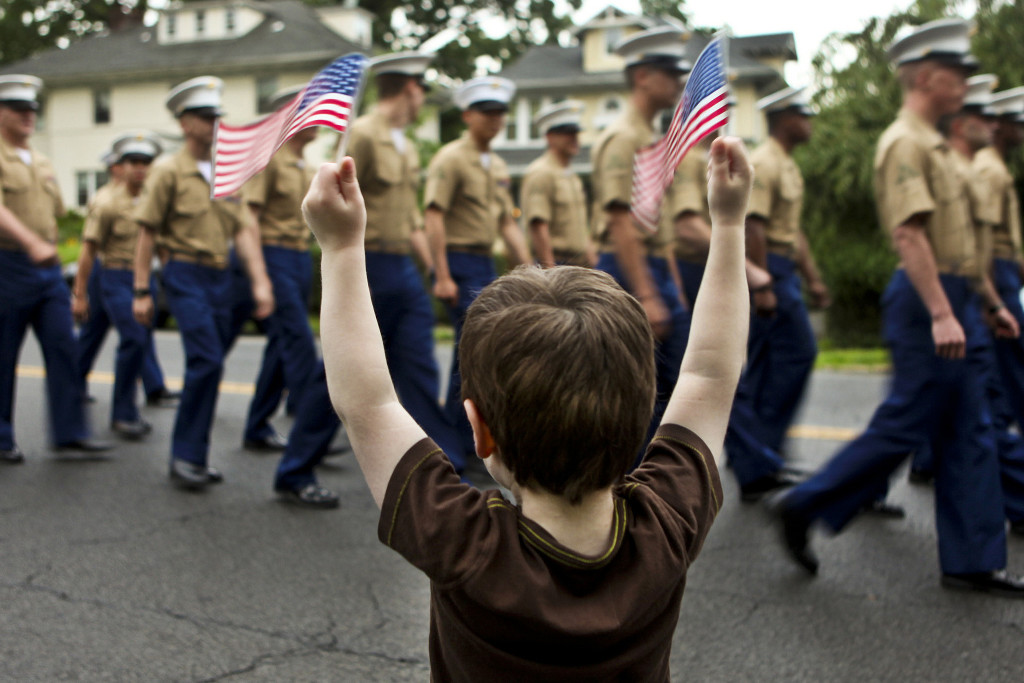5 Questions with David Danelo on his New Book, The Return: A Field Manual for Life After Combat

Editor’s note: This is a special Charlie Mike edition of our occasional 5 Questions series. For this installment, we spoke with David Danelo, author of the newly released book The Return: A Field Manual for Life After Combat. Influenced by his own experiences returning to the United States after serving as a Marine Corps officer in Iraq, David’s book examines the process of combat veterans’ reintegration into American society.
1. As a combat veteran yourself, what was the hardest part about coming back and how did that translate into how you wrote the book?
In late 2010, soon after I finished a field research project in northern Mexico, I came to the realization that I would always be a “different” type of civilian; that a part of me would identify as a warrior no matter what I did or where I went. I had left the Marine Corps in late 2004, but it took years before I fully embraced my warrior identity as a civilian. I wrote The Return to encourage both veterans and civilians to see combat experience as a gift rather than as a traumatic curse. Sometimes we speak of combat as a kind of karmic Ebola — we are told, effectively, we must quarantine and exterminate our martial spirits to operate in civilian life. I am not sure it is useful for combat veterans to be asked to fix, adjust, or re-program the deepest parts of their souls.
2. Do you think it’s the veterans job to transition 100 percent his or herself or do you think civilians, namely the workforce, should meet them half, or some percent, of the way?
There’s an important distinction between “transitioning” and what I call returning. Transitioning is about taking skills and aptitudes and repurposing them from a military context into civilian employment. By contrast, returning is more esoteric — this involves completing a spiritual and social rite of passage. Unlike merely transitioning, those who return can go back and forth in various mental and emotional places, all the while being grounded in who they are. They have evolved to the point that they can walk comfortably in both war and peace, and choose how to operate in each circumstance.
3. What do you think is the most important part of the book, rather what is the one part you think everyone should read?
Perhaps post-traumatic stress does not necessarily represent “disorder.” The term PTSD stigmatizes the difficulty combat veterans have from translating the meaning and motivation from combat into a civilian context. Saying “you have PTSD” often creates a roadblock to honest conversation because it suggests the only result of combat is psychological catastrophe. What about post-traumatic growth? Isn’t that an option too?
4. Did you write this solely for the military or do you think civilians can get something out of it too? Why?
When veterans try to talk about war to those who haven’t fought, it is almost as difficult to explain the beauty as the tragedy. Not just the “band of brothers” thing or the combat adrenaline, but the tremendous sense of identity and purpose derived from living and succeeding in the moment. The depression many veterans plunge into during their first years as civilians often mirrors that of Olympic gold medalists who leave their sport following triumph. Buzz Aldrin, one of the only humans to walk on the moon, referred poetically to this sense of exile he felt after Apollo XI as “the melancholy of all things done.” I think both veterans and civilians have these experiences following powerful life events, and can benefit from this conversation.
5. A lot of veterans have knee jerk reactions to the ‘thank you for your service’ and tin can patriotism culture that the US has turned to in recent years. How do you think veterans should understand that and do you think civilians need to be more sincere when it comes to welcoming back those that have served?
Hey, we volunteered, right? Nobody forced us to sign up. Veterans should have some compassion for the everyday struggles of capitalism. Civilian life isn’t easy. It’s tough for average citizens to follow the news from Ramadi or Helmand when they have mortgages to pay and kids to feed. On the other side, civilians should try to learn a little bit about Iraq and Afghanistan — particularly considering their votes, as exercised through their elected representatives, are what sent us there in the first place. And that’s where WOTR comes in, isn’t it?
David J. Danelo writes about international affairs, directs field research for the Foreign Policy Research Institute, and consults independently on international border management. Danelo graduated from the U.S. Naval Academy in 1998 and served seven years as an infantry officer in the Marine Corps. In 2004, Captain Danelo served near Fallujah with the First Marine Expeditionary Force as a convoy commander, intelligence officer and provisional executive officer for a rifle company.

